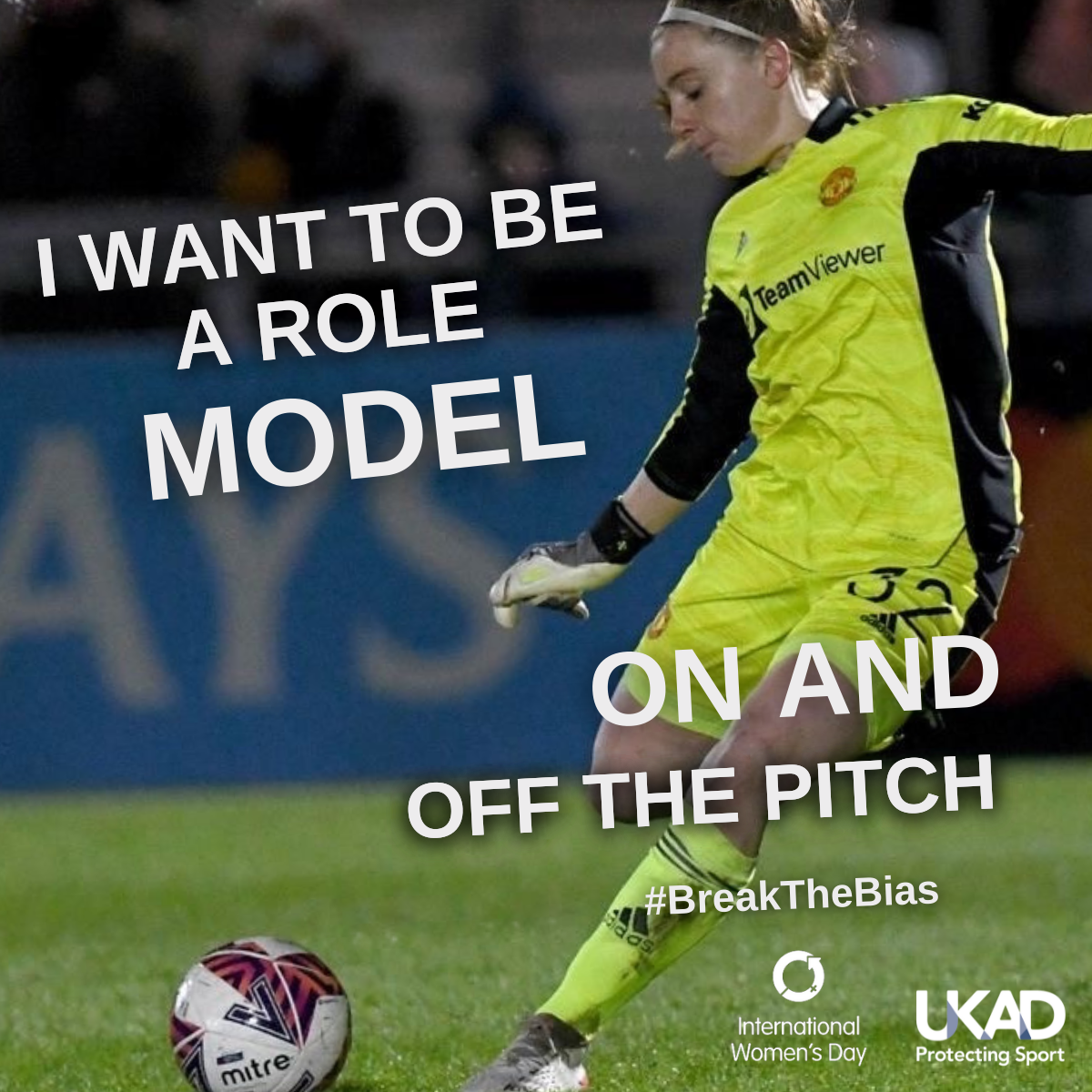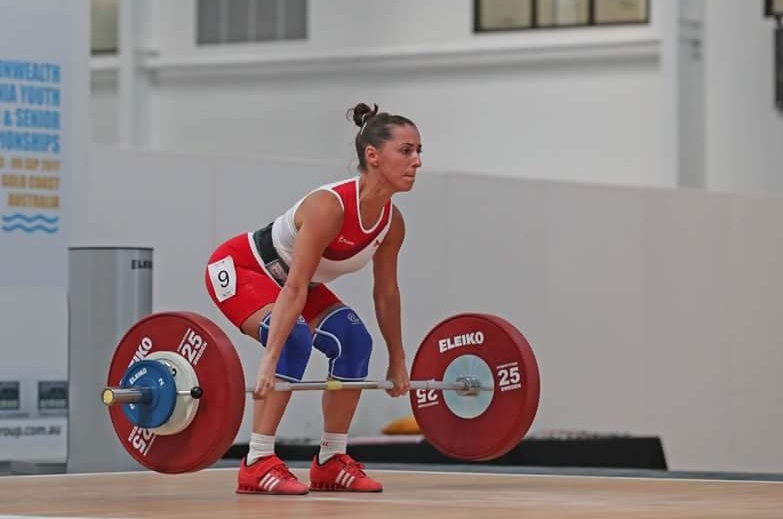An interview with elite footballer and UKAD Athlete Commission Member Sophie Baggaley: International Women's Day
International Women's Day, 8 March 2022

Sophie Baggaley is a UKAD Athlete Commission member and an England and Manchester United goalkeeper. The football star recently spoke to us about joining UKAD's Athlete Commission, her career and International Women’s Day.
Tell us about your career path in elite football.
When I was much younger, I used to play for Derby and then when I was 16, I moved to Birmingham, moving away from home to join their academy system. From there I went into their first team. Then I went to Bristol on loan and stayed there for four years and then my contract ended. It was brilliant that at that stage Manchester United said they were interested so I signed there. It was and is an incredible opportunity.
What has been one of your biggest career highlights to date?
A career high for me was signing for Manchester United last summer. Plus being part of the England set up in the national team has also been amazing.
Why did you want to join the UKAD Athlete Commission?
I was interested in becoming an ambassador for UK Anti-Doping (UKAD) as some people I was competing with didn’t really seem to know the rules about what’s legal and illegal, especially when we were younger. I met people directly in competition with me who had taken banned substances in the form of recreational drugs but hadn’t realised it was banned. That made me want to raise awareness and also to develop my own skills.
Education really helps but at a young age I did not undergo any education relevant to this area. Later, when I got to around 18 and in competition, we began to discover the risks and I now know education on anti-doping is key to keeping sport clean. UKAD provides values-based education to school aged children as well as elite athletes, which I think is really important.
I’m not sure what I am going to do when my playing career is over, that’s still a bit uncertain but by being in the Athlete Commission it has helped open my eyes to other aspects of being in sport more widely too. I would like to make a difference in any way I can really. I want to be a role model on and off the pitch.
What are some of the biggest challenges you’ve faced in your career?
Some of the greatest challenges for athletes probably come at the early stages of their careers when they haven’t had the education on risks and opportunities, as well as when they don’t have people around them as coaches and so on to protect and support them. I remember saying no to parties when younger as I had games the next day and though it may have been hard from time to time now looking back, I don’t regret it one bit.
As well, in football there is one goalie per team and therefore there has been times where I have missed out by not being selected. On the odd occasion I’ve had to move teams in order to be able to play more and that’s not always been easy, however I guess that’s part of sport in general really – you go to where the opportunities are or might be better.
What message do you have for other athletes in relation to anti-doping?
Within women’s football its quite a tight knit community and if you were caught cheating, you’d find it incredibly hard to get in another team. My message would be, get educated, stay clean, it’s just not worth it.
How much has the women’s game changed since you were young?
Being a woman footballer in my time has meant I've been able to see a big shift in attitudes towards the woman’s game. When I was much younger there weren’t really any women’s teams that I was aware of. I used to play with the boys when I was younger. Now if you look at the young girls coming through there is whole academy system, there are female coaches, and it has all taken off in the last few years. Big business investments have started to happen too with people now interested in investing in the women’s game. This all marks a massive change and step in the right direction, and it has been great to be a part of.
Who are your role models?
My main role models, especially as there weren’t so many women in the game as a youngster, would be my parents – they put me first, their values helped keep me on the right track.
It’s International Women’s Day and the theme this year is ‘breaking the bias’. What biases/stereotypes do you face/ have you faced during your career or are typical in your area of work, if any?
Growing up football was and probably still is a male dominated sport. I played football with the boys in the playground at school and the first team I played for was a boys team. I wasn’t aware of any girls teams until I was scouted. I think this is starting to shift and the infrastructures in place for young girls now are much better, and the number of girls playing now has increased massively. However, to this day there are discrepancies between the male and female game in terms of support, facilities, and treatment of players. We will continue to push forward and help improve the environment for future generations.
How do you hope to break/ tackle those biases going forward? Or what could others do to help tackle these?
The game has improved massively over the last 10 years and to think where it could be in another 10 is exciting. The stigmas we face aren’t what they used to be, but they are still there. There isn’t a quick fix, but I think we need to continue to be role models and push for increased standards all the time - this will lay the path for the next generation to do the same.
What do you think are the common biases/ stereotypes when it comes to anti-doping and how do you think we can overcome/challenge those?
I think doping presents itself slightly different in football and other team sports. People think when it comes to breaking the rules and cheating this is only done with performance enhancing drugs, but recreational drugs are also banned under the World Anti-Doping Code and in team sports social drugs can be more prevalent. Players need to be aware of this and the rules. I think to overcome this the players have to be role models firstly. For this to happen I think the education and support available to the players is important and is something that UKAD helps to provide.


